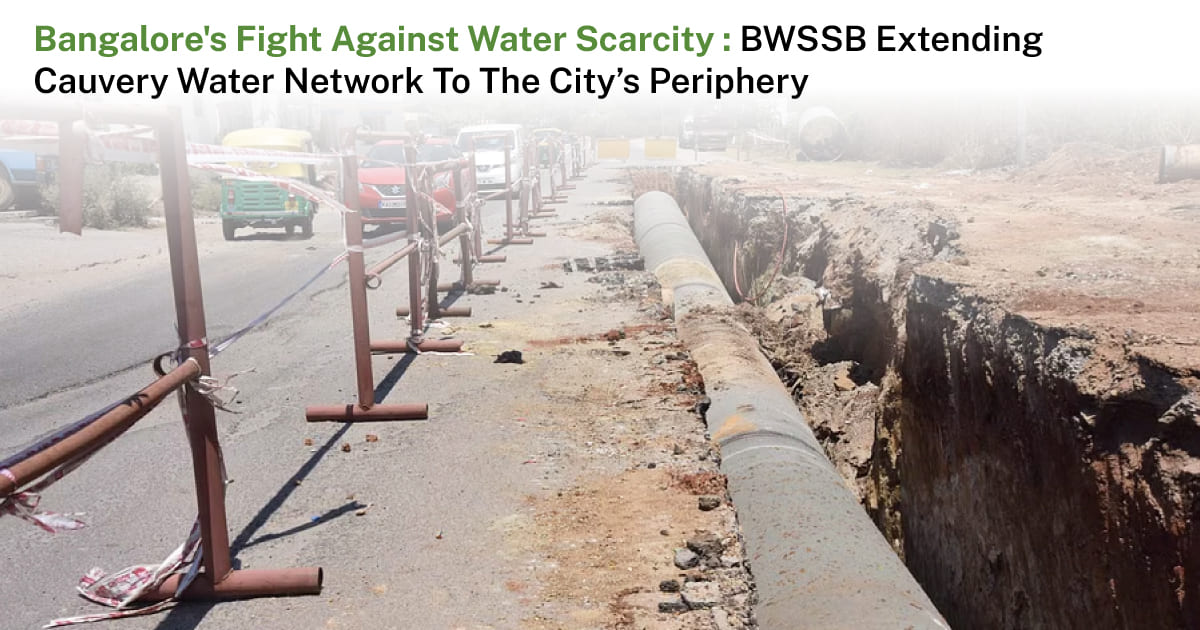
Bangalore’s Fight Against Water Scarcity: BWSSB Extending Cauvery Water Network to the City’s Periphery
The Silicon Valley of India, Bangalore, is a thriving metropolis bubbling with attractive opportunities and splendid public infrastructure. The city is the country’s quintessential hub of innovation and economic growth. However, this increased urbanisation and mobilisation of aspiring professionals from all parts of the country have led to mounting pressure on the already fragile ecosystem of the city.
This has culminated in a pressing water crisis in the city. As per a recent report, the Bangalore Water Supply and Sewerage Board (BWSSB) supplied water to less than 70% of the city’s population, with the rest of the city’s population having to depend heavily on ground water or private tankers. This has led to the depletion of an already limited groundwater supply as well as the deterioration of water quality, leading to a shortage of water and making the city vulnerable to catastrophic scarcity.
Already, many neighbourhoods have been experiencing bouts of severe water shortages, leading the residents to rely on expensive alternative sources. The looming water crisis has also severely impacted the operations of many industries reliant on it, often debilitating productivity and increasing operational costs.
However, recently, increasing efforts have been made to overcome the water impediment. According to a recent announcement, the BWSSB is planning to beat the water crisis and lack of proper supply in many heretofore ignored areas in the periphery of the city. The board is planning to expand its network of Cauvery water to provide supply to areas like Anekal, Nelamangala, Hoskote, and Devanahalli.
In the months past, the Board made an official request to be allowed to use 10 tmcft of Cauvery water in addition to the 19 tmcft of water it is currently utilising. This request was made in accordance with the 35 TMC allotted to the city. With the completion of Cauvery Stage V, it is imminent that this request will be met with success.
Further, the board is also in the process of underlining a detailed project report (DPR) for stage VI of the Cauvery initiative, requesting another 6 TMC. As the population of the city increases by the minute, it is critical that imminent action be taken to prevent a water crisis, and this is exactly what DPR aims to do.
However, while Stage V is slated to be finished by May 2024, funding for the subsequent stage still remains a challenge. An official from the board recently stated that the board is unable to fulfil such a tremendous financial undertaking and that options such as government bodies and international banks would be explored.
Bangalore’s water crisis presents a pressing challenge that demands immediate attention and innovative solutions. While efforts to expand the Cauvery water network to the city’s outskirts offer a glimmer of hope, sustainable water management practices and community engagement are essential to ensure long-term water security. As the city continues to grow, collaborative efforts between government agencies, private sectors, and citizens are paramount in overcoming this critical issue and safeguarding Bangalore’s future prosperity and well-being.



